What Is An Intuitive? (and How to tell if You Are One)
If you’re a newbie to typology, one of the most confusing aspects of your type may be the S or N preference in your type code. Whenever I’m working with someone to help them find their type, the S/N dichotomy is one that puzzles them most.
So how can you tell if you’re an intuitive? And how can you relate to intuitives better if you’re a sensor?
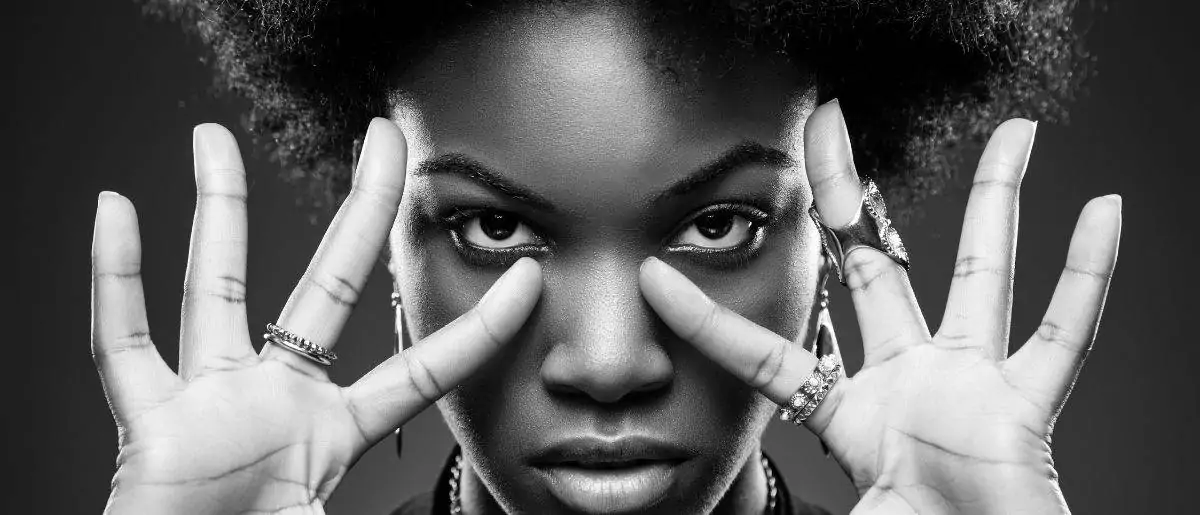
That’s what we’ll be exploring today.
First things first!
Not sure what your personality type is? Take our new personality questionnaire here. Or you can take the official MBTI® here.
Table of contents
Estimated reading time: 5 minutes
What is an Intuitive?
In Myers-Briggs typology, there are two kinds of people: Sensors and Intuitives.
Intuitives look for patterns or meanings that go beyond the surface of reality. They are fixated on connections and possibilities more than current realities.
Sound confusing?
Imagine you’re having a picnic. It’s a bright and sunny day and you’re eating sandwiches under the shade of a tree.
Which part of the tree captures your attention most?
- Do you notice the patterns on the leaves, the scent of the breeze, the texture of the bark, and any other distinguishing details?
- Do you think about the tree in some symbolic form? Do you imagine the tree as a shepherd watching over you? Do you find your mind wandering to lots of hypothetical possibilities related to trees? (“I wonder how much paper I could make out of this tree! I wonder what will happen to the Amazon rainforest as it loses more trees”)
If you identified with the first option, you have a Sensing perspective when it comes to the tree. If you chose the second option, you have an Intuitive perspective when it comes to the tree.
Sensors notice specifics, details, and realities. The world of sight, sound, taste, touch, and smell is significant to them and, as such, they are keenly aware of shifts and changes in the sensory world. They trust what they’ve experienced or have verified by the experiences of others they trust.
Sensors live in the real world and they reference the real world. Because of this they tend to be called “down-to-earth,” “grounded,” or “practical.” They appreciate perfecting the details of their lives.
An intuitive is far less interested in the literal reality of what does exist and is more interested in the potential of what could exist. Rather than seeing things for what they are, they see things for what they could be. They trust patterns, connections, and hidden meanings. The world around the intuitive is fascinating as a springboard for future ideas and possibilities. They try to connect everything to see to a big picture. The tree becomes the forest and the forest branches out into the future of the planet!
“But sometimes I relate to both descriptions!”
That’s good! That means you’re a fully-functioning human.
We all use sensation and intuition.
After all, it would be pretty sad to be an intuitive if it meant you couldn’t taste the flavor of chocolate, feel the heat of a bonfire, or gaze at an orange-purple sunset!
It would also be sad to be a sensor if it meant you couldn’t imagine, daydream, or think about possibilities outside of the present moment.
We all need sensing and intuition.
But which is your more natural state?
Do you find that your mind naturally wants to veer to the future (intuition), or are you more grounded in the present (sensing)?
Are you always looking for a hidden meaning behind things (intuition), or are you more likely to follow what people are saying at face-value (sensing)?
Are you more focused on what “could be” (intuition) or what “is” (sensing)?
When you converse with friends are you more interested in unpacking a theory or concept in detail (intuition), or are you more interested in exploring your personal experiences and relationships (sensing)?
While each of us can flip-flop between sensing and intuition, one naturally seems more comfortable. In the typology world, we often compare these preferences to handedness.
If you’re left-handed, do you never use your right hand? Of course not!
If you’re a sensor, you will use intuition as well, but it’s less comfortable than sensing and it will be sloppier.
If you’re an intuitive, you will use sensing as well, but it’s less comfortable than intuition and it will be sloppier.
How can this show up?
An intuitive may have 1,001 amazing ideas for the future but constantly misplace their keys because they’re too lost in mental theories. They may put their phone away in the refrigerator, forget to eat, or otherwise devalue or forget their “sensory” needs.
A sensor may have a practical, realistic mindset, but struggle to grasp more abstract, conceptual subjects. Because they aren’t as adept at spotting patterns and implications as the intuitive, it will take more work for them to veer into “unknown” categories.
Signs That You Are an Intuitive:
- You attach meaning and symbolism to the things around you almost instantly.
- You think in metaphors and symbols.
- You are driven by your inspiration. Without inspiration, you struggle to move forward.
- You’re on a constant quest for meaning.
- You focus on anticipating the future more than you focus on recalling the past
- You easily generate possibilities and new ideas
- You connect everything to the big picture
- You are driven to “connect the dots”
- You easily spot patterns and implications
- You’re more interested in exploring potential than focusing on the present
- You like to do old tasks in new ways
- You don’t naturally respect tradition
- Focusing on concrete (literal) details bores you
There’s More Than One Style of Intuition!
Everyone has their own unique brand of intuition. What’s yours? Find out in Here’s How You Use Intuition, Based On Your Myers-Briggs® Personality Type
What Are Your Thoughts?
Do you have any perspectives or insights to share? Discuss in the comments!
Find out more about your personality type in our eBooks, Discovering You: Unlocking the Power of Personality Type, The INFJ – Understanding the Mystic, The INFP – Understanding the Dreamer, and The INTJ – Understanding the Strategist. You can also connect with me via Facebook, Instagram, or Twitter!
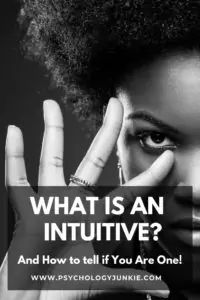









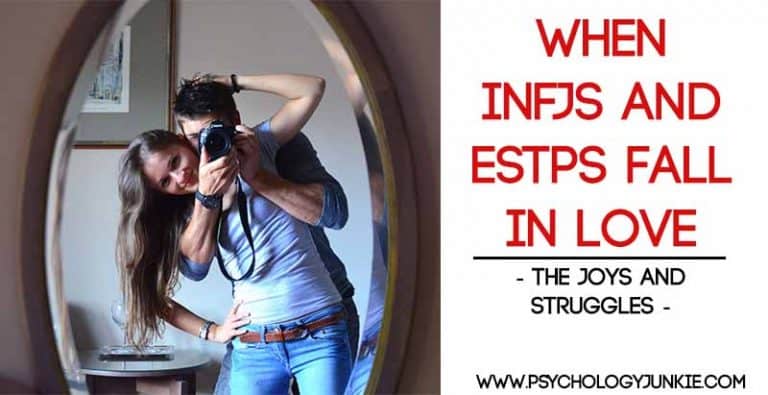
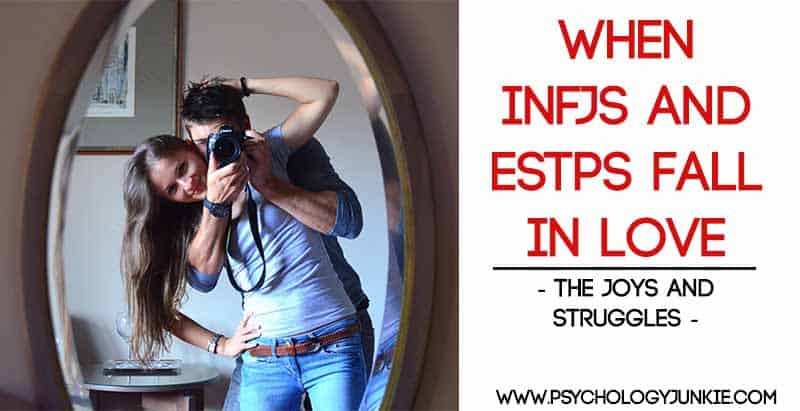
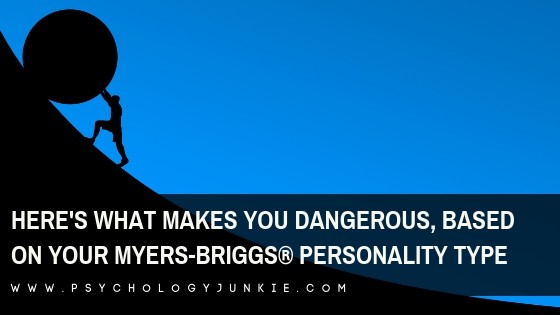
This is the single best article I have ever read regarding intuition. Thank you Susie. This article is a breath of fresh air to me. I am married to a high S and have many S friends and it is great to see the differences so beautifully described.
I love your work and am grateful for your contribution to understanding personality types! In that vein, I would like to add something to your discussion above. In your sitting under the tree example, it seems to me you have highlighted the intuitive thinking aspect of following ideas, like the amount of wood in the tree, the tree as shepherd metaphor, etc, but as a very strong intuitive feeler I would like to include intuitive feeling experiences going on under the tree. I might be feeling the presence of the tree, having a little chat with it, wondering what it has experienced through it’s long life, wondering if it has a relationship with the birds that land in its branches, sending it love and appreciation for the shade and beauty it is providing me, etc. These feeling traits are very hard to describe because of course they also can include a thinking/mental activity aspect, but they are geared totally to the emotions and connections I’m experiencing. I may in fact have no thoughts going on at all, be in a quiet mind, meditative stillness, but still be exploring all the feels that being by the tree is inducing. I have a sense that understanding an intuitive feeler might be one of the hardest aspects of the whole MBTI work!
Thanks for listening! 🙂
I love this! Thank you for adding your example and perspective. I think it’s perfect 🙂
Susan,
Nice explanation. I am an Intuitive. (INFJ) I’ve no doubt there, but I have been listening and reading a bit about Mindfulness. I wonder if being a predominate sensor giving one an easier access into this mindful state. I’m 65 and over the recent past, I have been trying to develop my external Sensing function (which is No. 4 in my developed stack) in connection with being more mindful. Any thoughts you have would be appreciated. Thanks again.
Dear Susan,
I am an INFP. Somedays I am an INSP Thanks for the reminder that to go that way doesn’t mean I am weird, just flexible. Imagine what this world would be like without flexible people. Maybe we don’t have enough flexible people. Maybe that is what is needed. Now I am reminded of a game I played once called the game of life. It came down to every one of us living in our integrity so we all can win. I am for everyone winning we just have to know what we really want and allow everyone else the same choice. Besides who has time to rule a whole planet? Not me.
oof